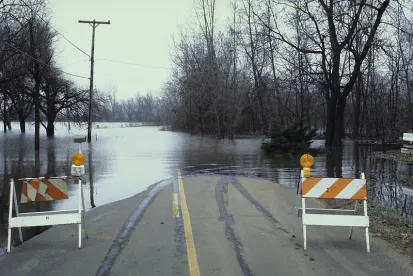According to Lloyd’s of London, which helped to reinsure the National Flood Insurance Program (NFIP) for more than $1 billion seven months before Hurricane Harvey, the storms in Texas and Florida may result in damage amounting to $150 billion to $200 billion. This likely will precipitate a review of the preemption defense available to claims arising under the NFIP. Further, it has been established that amendments to the Insurance Code under Texas House Bill 1774 will not apply to flood insurance claims under the NFIP. Most businesses and a substantial percentage of residential claims originating from Hurricanes Harvey and Irma will be subject to other statutes that are now undergoing close scrutiny and careful interpretation.
Before delving into specifics of the available defenses, it is helpful to provide an overview of the complex regulatory framework governing federal flood insurance policies. At the heart of the statutory scheme is the National Flood Insurance Act of 1968 (NFIA), which created the NFIP under 42 U.S.C. §4001 et seq. The NFIP is administered by the Federal Emergency Management Agency (FEMA) and supported by taxpayer funds, which pay for claims that exceed the premiums collected from the insured parties. Simply stated, the NFIP is a federally subsidized program designed to make flood insurance available to the general public at or below actuarial rates.
Under the NFIP, FEMA writes the policies and makes the rules as to claims made under those policies. The three Standard Flood Insurance Policy (SFIP) forms (dwelling, general property and residential condominium building association) provide that “all disputes arising from the handling of any claim under the policy are governed exclusively by the flood insurance regulations issued by FEMA, the NFIA and Federal common law.” This language amended an earlier version of the provision; it was added to ensure uniform interpretation of the SFIP and to clarify that matters pertaining to the SFIP, including issues related to and arising out of claims handling, must be heard in federal court and are governed exclusively by federal law.
In 1983, FEMA created the Write Your Own (WYO) program, which allows private insurance companies to issue and administer SFIPs in their own names as fiscal agents of the federal government. For the policies they issue, the WYO companies are responsible for the adjustment, settlement, payment and defense of all claims. The government, in return, reimburses the WYO insurer a flat 3.3 percent commission on claims paid. Ultimately, it is the government and not the company that pays the claims.
The NFIA contains a remedial provision that creates a sole cause of action sounding in contract for insureds against the Federal Insurance Administrator to be brought in federal court within one year after the cause of action occurs. Exclusive jurisdiction is conferred upon such court to hear and determine such action. Accordingly, if an insured is dissatisfied with the handling of a claim, it may bring a breach of contract claim against its flood insurance carrier, which must be heard in federal court and is governed by federal law.
According to this statutory framework, every circuit court to address the question has concluded that the NFIA neither created nor authorized an extra-contractual right of action for insureds who are dissatisfied with the handling of a claim under the NFIA; rather, these courts have consistently found that Congress intended for the NFIA to preclude such claims when the underlying facts arise from a WYO carrier’s administration of the NFIP. This includes:
-
Dismissing state law claims as preempted by the NFIA
-
Dismissing the plaintiff’s “extra-contractual requests for interest, costs, and attorneys’ fees” because the NFIP preempts state law claims for penalties and attorneys’ fees brought against WYO insurance carriers participating in NFIP
-
Declining to allow plaintiffs to add a state law tort claim to a complaint relating to a defendant’s denial of claim
-
Presenting claims alleging failure to act promptly on communication, refusal to pay the claim, failure to affirm coverage and not attempting a good faith settlement.
The preemption for claims based on violations of other federal statutes, including RICO, for conduct falling within the scope of the NFIP has been extended to adjusters, engineering firms and others. Indeed, some obtained dismissal of all federal and state court litigations, including several purported class action litigations, based on the preemptive provisions of the NFIP since the allegations were based on the adjustment, processing and payment of the plaintiffs’ flood insurance claims. Congress and FEMA have regulated the claims adjustment process and judicial review of coverage claims under flood insurance policies. Therefore, the challenged conduct is already covered by a more comprehensive and specialized federal statute and such litigation is precluded.




 />i
/>i
